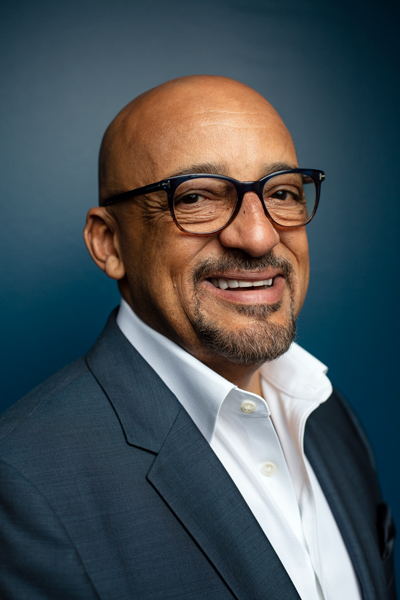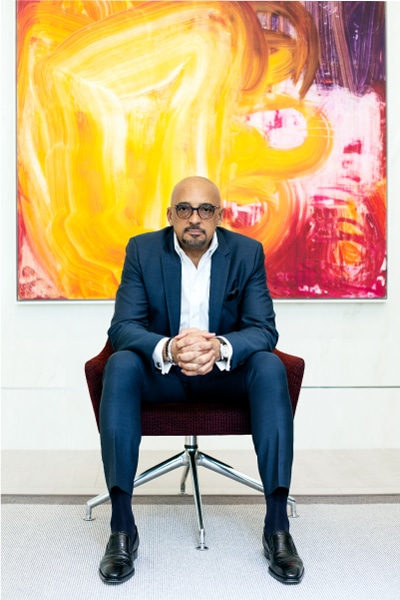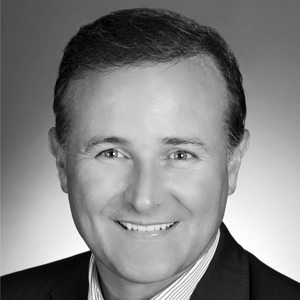Many people view insurance policies as a necessary hedge against accidents or catastrophes that they hope will never happen. As a result, the industry hasn’t evolved as much as others to attract and retain customers who would more than likely prefer never to put its products to use.
“The insurance industry itself has been entrenched in tradition,” explains Gerald A. Dupre, president of Hallmark Specialty Property, an excess and surplus commercial property insurance business unit of Hallmark Financial Services, Inc. “I tell people we work in a field where folks would rather write a check to the IRS than a check for an insurance premium.”
Dupre and his team are working to change that, though, through several initiatives tailored to cater to a client’s unique needs for primary, excess, and shared layered property risks for the wholesale market.

Hallmark is working to equip its insurance underwriters with a platform that uses technology such as artificial intelligence to more accurately assess risks and find the best balance between cost and coverage for clients. Specifically, these tools enable Hallmark’s underwriters to quickly access a set of complex analytics to help craft an individual customer’s policy for the wholesale broker. Such changes have helped position Hallmark at the forefront of incorporating a wide range of tools and platforms that are helping improve the customer experience and streamline policy management.
But that doesn’t mean Hallmark is eschewing tradition for technology. Dupre recognizes there is an art to insurance underwriting, and he often builds teams that seek to balance experience with innovation.
“I work off of the idea that, in putting a team together, I need to have as much diversity in that team as possible—diversity in background, diversity in experience, and diversity in skill sets,” Dupre says. “My goal is not to have a monochromatic view of what we are trying to achieve, which results in a better product.”
Hallmark’s culture emphasizes collaboration. Dupre has proven to be adept at building teams whose members are willing to both listen and learn. One key is enabling more seasoned team members to know that their experience is one of the most valuable assets the company has, while also allowing newer employees to know their input is equally important to a project’s success. Given that, Dupre sees himself as more of a referee who helps keep people on the right course than a dictator who decides the direction a team will take.
“I believe that once you empower individuals and let them know their voices will be heard, it takes down the barriers and facilitates the team’s creativity and focus on solutions,” he says.
Dupre’s dedication to diverse teams also encourages mentorship, which has been instrumental in his own corporate climb. Although he found himself leading teams of people who were senior to him in both age and experience less than a decade into his career, he was still willing to heed noteworthy advice from others who were eager to help him excel. That, combined with his parents’ early message that he has a social responsibility to shepherd others to success when he can, has been a cornerstone of Dupre’s corporate journey.
“In my office, I have a sign that says, ‘Be who you needed when you were younger.’ That reminds me on a daily basis of one of my key purposes,” Dupre says. “I think some of the proudest moments are when you can sit back and see how you’ve been able to provide that point of reference or assistance to someone in achieving their goals.”

Dupre also strives to extend that mentorship mind-set instilled by his upbringing and early career to his community commitments, as well as everyday interactions. “When you go to the office, you say ‘good morning’ to everyone—the security guard, the receptionist, the CEO—everyone gets the same ‘good morning,’” Dupre says.
That same appreciation is also felt with teams Dupre works with outside of the company. “Gerald Dupre has been a key partner for me throughout my entire career,” says Brenda (Ballard) Austenfeld, president—national property practice, at RT Specialty. “He has always shown a great deal of innovation through his leadership, talent recruitment, and execution. RT Specialty is proud of all of the accomplishments Gerald continues to bring to our great industry.”
That inclusive approach serves as another subtle reinforcement that everyone’s contributions are valued—regardless of their age, experience level, job title, or tenure. And Dupre says Hallmark’s CEO Naveen Anand encourages a similar approach. Anand is a visible CEO who knows everyone by name and often asks about specific members of Dupre’s staff. At the same time, he’s not a micromanager. Instead, Anand places a high-level of trust in his executive leadership team.
“That level of support is empowering, and it puts you in a position that makes you want to be a good steward of the company,” Dupre says.
But just like the insurance industry, that doesn’t mean Dupre and other executives will remain idle. Hallmark is honing its new underwriting platform, aiming to expand its specialty property unit, and increasing its exploration of technology, among other initiatives. Beyond that, Dupre says the once-staid insurance industry and the technology driving it is now changing so rapidly that it’s difficult to say specifically what might come next. No matter what that may entail, though, one thing is for sure: Dupre and his team will be ready with open arms.
Photos: Gillian Fry

